|
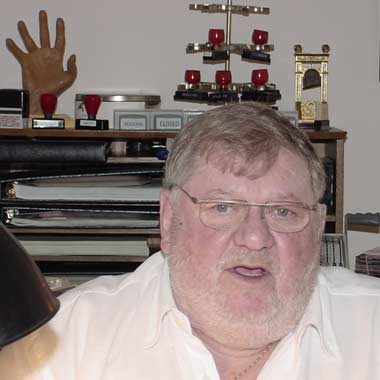 Al: I was talking to your buddy over at the University of Chicago.
Al: I was talking to your buddy over at the University of Chicago.
Maury: John Woods?
Al: He said, you talk to Maury if you want to get
a really great interview. So, what I need to know from you is about your
childhood.
Maury: I was born in Philadelphia, PA in
1932, and lived in and around the Phila area until just under eight years of
age. In 1939, my father was then offered a position in Chicago, and we moved
out here-just the three of us, my mother, father and me. I have lived in
Chicago ever since; Chicago is really my city. I don't remember much about
Phila, although I have a huge family there of course.
Al: I grew up right across the river from you in
Merchantville, NJ.
Maury: Did you really? Then you must
have heard of where I grew up, Strawberry Mansion. I remember it very well. I
came from a large extended family. My mother had eleven brothers and sisters
and my father had ten brothers and sisters. However, not all of them made it
over here from Russia, but a lot of them did. They all had a lot of children,
and there were a lot of cousins-a huge family. A good portion of that family
lived in Atlantic City. I feel that home was more Atlantic City than it was
Phila, and I remember more of Atlantic City than I do Phila. We would go there
every summer. Going there and spending the summer was a child's delight. The
boardwalk was wonderful. It was a magic place and so was the beach. Atlantic
City back in the 30s and the early 40s was a wonderful experience. But, I'm a
Chicago boy.
Al: Your life parallels that of Studs Terkel, who
I interviewed a couple years ago. Studs said that his parents came from Russia
also. Studs got into writing and you got into commodities trading.
Maury: I spent thirty years as a
commodity trader for the Chicago Mercantile Exchange. Before that I practiced
law for seven or eight years. Then I left the practice completely and went to
the Mercantile Exchange and spent the next years as a pit trader with an
emphasis on trading gold.
Al: How did you get into gold?
Maury: Well, that is a very interesting
story. In 1968-1970 gold was still a forbidden product here in the U.S. You
couldn't own it. In 1934, Roosevelt passed the Gold Reserve Act of 1933-34
which made the ownership of gold illegal. The only gold you could own were
coins of numismatic value. You couldn't own a piece of bullion, you couldn't
own a little ingot, big or small, and it was illegal. So, a lot of people put
it away and hid it. From 1933-34 until 1975, gold was illegal and not permitted
to trade.
However, in 1967-68, I was very much
involved in anticipating that gold would be legalized again in the US. The gold
market was becoming very active at that time, albeit they had a frozen price on
gold something like $11 an ounce.
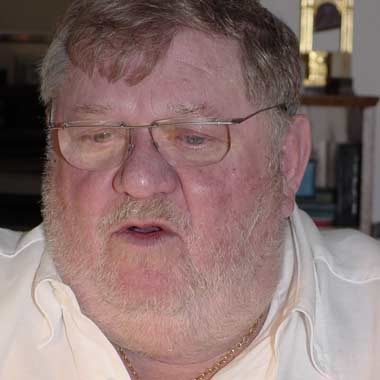 Al: I would have like to have bought a lot of gold
at that price!
Al: I would have like to have bought a lot of gold
at that price!
Maury: Well, a lot of people did-those
who opened their eyes and anticipated what was going on. I anticipated that
gold would be legal, but I didn't know when. I had an idea that this would take
place from the time I got interested in it to the time it was re-legalized-about
five or six years. I was at that time a young broker with the Mercantile
Exchange. I not only anticipated what would happen, I knew that I had to do
something about it to get into position to take advantage of it. What I did was
I organized an effort to solicit primary security firms in the US to become their gold broker.
Al: How did you pull that off?
Maury: It wasn't hard to do, because
there was no such thing as a gold broker! In 1970, I targeted firms to approach
and most of them were in or near New York City, not in Chicago. I started a
series of visitations to NY. I would go in for a couple days at a time and
would visit a half dozen companies at a time. I presented myself, most of the
time with appointments, pre-set to see people in certain departments. They
didn't have gold department, but I got next to the next closest departments. I
would arrive and say, "Hi, I'm Maury Kravitz from Chicago, and I'm here because
I want to be your gold broker." They would say to me will all of the eyes
popped open, "What do you mean a gold broker? There is no gold market." Then I
would say, "You're right; there is no gold market but there will be. And when
it comes, I want you to remember who came and knocked on your door first when
there was nothing. What I'm asking for is a commitment from you that you will
seriously consider me to be your gold broker when that market comes into
existence." They all said, "That is the easiest thing in the world to commit
to. You are a nice guy. I will consider you as our gold broker."
It is very easy to do that when there
is no market and no competition! They found me as almost a lunatic type of guy
coming in here all the way from Chicago to see them and to solicit their
accounts for a market that didn't exist! I did that for several years very
intensely.
 Al:
You did this while you were still working at the Merc? Al:
You did this while you were still working at the Merc?
Maury: Oh sure. Being in pork
bellies-nothing could be further away from the gold market than that. I started
to develop a recognition factor among these security firms in New York. I
didn't just visit them once. I touched base with them several times with always
the same thing, "I want to be your gold broker."
On
January 1, 1975, the US had bit the bullet and announced that on that date, it
was then legal for a person to own gold, to trade gold, to buy and sell it. The
Mercantile Exchange anticipated this and immediately organized a gold contract.
They opened it on that morning, and Maury Kravitz was standing there. It
suddenly dawned upon the Merc's leadership that here's this guy standing in the
middle of this brand new contract with 95% of the business. Why? Because I saw
it coming and had solicited all these people several years before-an they
remembered me. Almost 95% of those people honored their promises. In fact, it
worked to my detriment. I was so successful that it was a very detrimental
thing. The market opened, it started slow, because we weren't used to trading
gold. In the first few months of 1975, you could feel the throb of what was
coming on. Gold being what it is, the most romantic commodity in the world, it
had a life of its own. It has a credential, a history of its own.
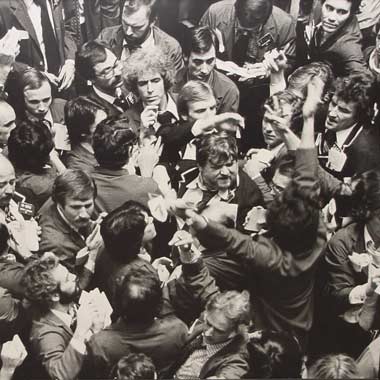 So, the business started coming, and
my business just exploded! Like a hydrogen bomb! The Exchange started to see
what was going on. More and more brokers were coming into the gold pit, and
there was one guy who controlled practically all the business. It grew to 10-15
brokers and me, then 25 then 40 then 50, then 80 brokers. To give you a sense
of what this really meant, I have to show you a picture that I will take off the
wall. This picture is good because it conveys the sense of what I was in the
midst of in the middle of 1975. It sends the message real loud and clear. I'm
right in the vortex! Now, in addition to gold being a new product, on top of
this romantic commodity being what it was with its historical credentials, the
US was in the throes of one of the worst inflationary periods in many years,
which was the main fuel for gold.
So, the business started coming, and
my business just exploded! Like a hydrogen bomb! The Exchange started to see
what was going on. More and more brokers were coming into the gold pit, and
there was one guy who controlled practically all the business. It grew to 10-15
brokers and me, then 25 then 40 then 50, then 80 brokers. To give you a sense
of what this really meant, I have to show you a picture that I will take off the
wall. This picture is good because it conveys the sense of what I was in the
midst of in the middle of 1975. It sends the message real loud and clear. I'm
right in the vortex! Now, in addition to gold being a new product, on top of
this romantic commodity being what it was with its historical credentials, the
US was in the throes of one of the worst inflationary periods in many years,
which was the main fuel for gold.
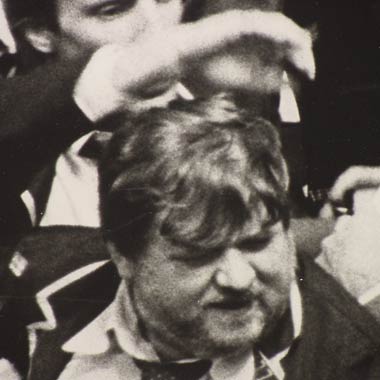
Al: When the gold became legal, what was the
selling price?
Maury: In 1975, I actually traded the
product at $99.85 an ounce, but then it moved quickly from the gold window.
When it started it was locked at $22 an ounce and finally finished at $852. But
inflation is now cooking hot and heavy, and with each tick up of inflation, the
gold market became that much bigger. The sages of Washington decided they
better stop this massive rush into gold. They did one of the most imbecilic
acts in the last two years. They said that they would stop the gold market from
going up because it was counterproductive to the way our structure was. They
were trying to re-monetarize our whole system, our whole economy with gold. The US government started
putting gold out on the market every third Friday and the world of gold
accumulation just stood there like a huge monster and said, "Bring it on!" It
almost drained Fort Knox. The government hadn't stopped it before almost 300
million ounces was squandered out in the world. It stimulated the market even
more, and then I started to get not just American business, but I started to get
calls from European banks. The big gold trading banks wanted a representative
in the Chicago gold market. I went to Frankfort and established some
relationships with some primary gold trading German banks. The Germans were
very much into the gold markets. The biggest one, the Dressner
Bank, one of the big banks in Germany, they quickly hired me. They said,
"You are our guy, and we are going to call our orders in to you." They were
particularly excited about the fact that I was fluent in German and could convey
the orders in German to me. This meant that they didn't have to worry about an
English translator. I started to get orders from them.
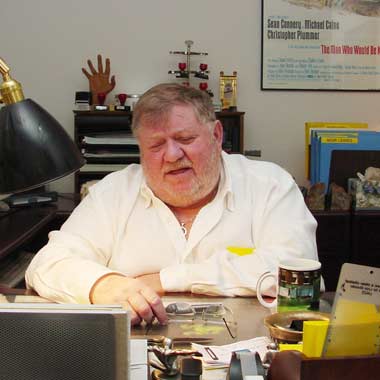 Finally, the Board's Executive
Committee came to me be of the sheer size of what I was doing was overwhelming
the entire contract. They called me in and said, "Maury, you can't handle all
this business. You've got all the security firms in the country and are
practically trading with yourself." They had a rule: if you couldn't get a bid
or offer from the other side, you had to renounce it three times in the pit. If
you couldn't get somebody else to fill your order you crossed it. So, I traded
with myself. I bought and sold myself. They said, "This is bad; this is going
to ruin our contract." They ordered me to sell them my business. This was a
traumatic event for me. I said, "Do you realize what you guys are telling me to
do? I'm being penalized for being a good capitalist." They said, "Yes we are,
but we want our contract.". I had no choice. I couldn't take on the leadership
of the Exchange. I called in several young brokers who had almost no business
and that that I would give them some accounts. I started to split up my
business. Several of them ended up shortchanging me. This happened because not
everyone in this world is an ethical person as you know. I spent the next five
years being immersed in that market and on January 21, 1980, gold was drifting
around above $800 an ounce. I had made the trip with gold from when I arrived
in the pit at around $100 an ounce to $800 an ounce. You are talking about a
product increasing by 800%.
Finally, the Board's Executive
Committee came to me be of the sheer size of what I was doing was overwhelming
the entire contract. They called me in and said, "Maury, you can't handle all
this business. You've got all the security firms in the country and are
practically trading with yourself." They had a rule: if you couldn't get a bid
or offer from the other side, you had to renounce it three times in the pit. If
you couldn't get somebody else to fill your order you crossed it. So, I traded
with myself. I bought and sold myself. They said, "This is bad; this is going
to ruin our contract." They ordered me to sell them my business. This was a
traumatic event for me. I said, "Do you realize what you guys are telling me to
do? I'm being penalized for being a good capitalist." They said, "Yes we are,
but we want our contract.". I had no choice. I couldn't take on the leadership
of the Exchange. I called in several young brokers who had almost no business
and that that I would give them some accounts. I started to split up my
business. Several of them ended up shortchanging me. This happened because not
everyone in this world is an ethical person as you know. I spent the next five
years being immersed in that market and on January 21, 1980, gold was drifting
around above $800 an ounce. I had made the trip with gold from when I arrived
in the pit at around $100 an ounce to $800 an ounce. You are talking about a
product increasing by 800%.
Paul Volker was dedicated to one
thing. He had to stop the inflation. He started raising the interest rates.
If you remember correctly in 1980, he had the rates up. I remember buying Euro
dollar instruments which would pay me 18.5%. I remember doing that for an
associate of mine. I bought a million Euro dollars, one year maturity, which
produced $181,000 in less than a year. Volker did not give up a scintilla of
compassion on what these interest rates were doing. He was going to stop
inflation. He didn't care about a recession or what it did to the economy. And
he was right. He knew that unless he did, if the inflation had gone up any more
than it did, it would have destroyed the economy completely. Well he did, and
fortunately I anticipated it. I said that we were seeing the last of the good
gold years for a long time. In January 1980, it topped out and by the time late
1981 came around, I had already made arrangements to parcel out the remnants of
my gold business to other associates.
I was already looking at the next new
baby to be born, and that was born in April of 1982, and that baby was the S&P
500-a stock market in the form of futures. That's where Maury Kravitz went and
spent the next six years building up from nothing of a contract to another
enormous monstrous contract. In 1987, I reached an age where I had wanted to
cut down anyway, and I started to move out. By 1988-89, I spent less than 50%
of my time on the floor, and in 1992, I left the floor entirely. By that time,
I had built a company, an order filling company, which is still in existence.
I am a primary owner of International Futures and Options Associates. This
company is now the largest floor execution firm in the US, and we are in five
exchanges. I am one of the persons, a partner, who is still committed to the
company, a successful company, but I do nothing any longer. I go to meetings
twice a year and get my check once a month. There is a time to say good-bye,
you have to say goodbye. You don't want stay in the saddle until the horse
finally drags you down.
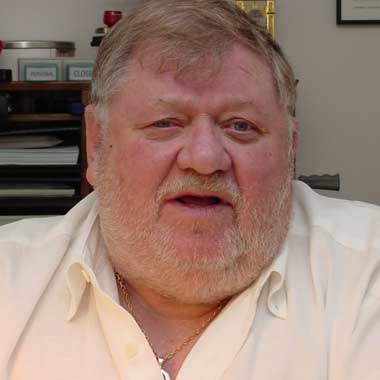 Al:
I always believe that pain produces creativity and motivates a person to
succeed. What pain accounts for your success? Al:
I always believe that pain produces creativity and motivates a person to
succeed. What pain accounts for your success?
Maury: I grew up hungry and grew up in a
very intellectual circumstance. My father was a remarkable man. He was a
scholar in the classical sense. He was always learning from his young
adolescence until the day he passed away. He could read hieroglyphics. He used
to take me to the Field Museum and sit down with me in the basement and read to
me the hieroglyphics on the walls. He was from Bessarabia, Russia. It's a strip of land which is separated from Rumania
by a river called the Dniestr. On the east side of the river is Russia and on the west side is
Rumania.
Al: Where did he get his education?
Maury: His education was in small town,
and it was along the lines of Jewish Orthodox instruction. My father was a
child prodigy, and I say this without hesitancy. By age six, he had reduced the
entire five books of the Old Testament by heart. He knew them all by heart in
the original Hebrew. He was so remarkable as a child that they didn't call him
by his given name, Nathaniel. The townspeople, referred to my father as
"zeydele," which in Yiddish means "little grandfather." They called him
that because of his sheer ability to read books.
This was the environment that I grew
up in albeit my father who became the night editor of a paper, I never saw him
during the day. He was a nocturnal man. All my adult life when I needed to
talked to him I knew that the way to get to him was to call at 3am. He would
say to come over. When I arrived, he would be sitting at the table surrounded
by books that he was studying. He was a remarkable scholar. He started an
interest in astronomy at age of seventy-two. He ended up with a telescope on
the roof of the building and the whole bit! When my father would go into a new
field of study it was a complete immersion! Music was foreign to him, but at
age seventy-five, he started to putter around with it. He studies the
philosophy of music and how the notes were put together. He was interested in
the structure of music-the intellectual side of a musical composition. He
completed reading all the philosophy of the world and all the comparative
religious studies. He was also completely absorbed all the great Russian
writers.
My father and I were diametrically
the opposite sides of the coin. He was not interested in money, and he never
provided well for my mother because he always put his scholarly interests
first. He was offered a position at the University of Chicago because of his
linguistic abilities. They had a seat open in the study of Semitic languages,
the old ones too. It was a wonderful position that was offered to him, and he
decided after reviewing what was required of him that it would interfere with
his real studying habits. As a result, my mother suffered, because there was
never any money. This was my father, and he never changed his ways. He stayed
the course of what he was until the day he passed away.
I think that I just decided that I
was not going to do what this man did. I was not going to life living in books
and in the clouds. His greatest joy was detaching himself from the everyday
world and going into the world of intellectual pursuits. So, I am very much the
opposite of my father, although I do have a lot of interest that have nothing to
do with money.
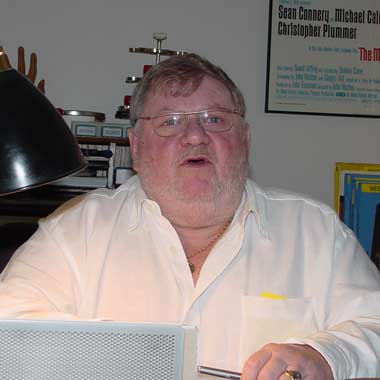 Al: What did you do after the Merc and S&P. What was your next phase in your life?
Al: What did you do after the Merc and S&P. What was your next phase in your life?
Maury: In 1995, I had detached myself
from the Merc, after being there thirty-four years, and I was up in the office
trying to manage the company and that was a very boring activity for me. I had
to keep busy and do something. So, I went back into the practice of law in
1996, but all of that was to fill time. And now, I just gave notice to my two
partners this year that at the end of the year I am done. I am giving up the
law practice completely. I don't want to do it anymore.
Al: Then what will you do?
Maury: I don't know. I am going to have
to find something to do. I am not going to get up in the morning and simply
look at the four walls. I do a lot of things. I like to sail a lot, I have a
pretty nice boat. I'm married with two daughters and two granddaughters. I
have a very active family, and I am pretty active with them. My oldest daughter
lives in Chicago, and the other lives in Highland Park about seven minutes away
from our home. We have a lot of family contact and are a very close-knit
family.
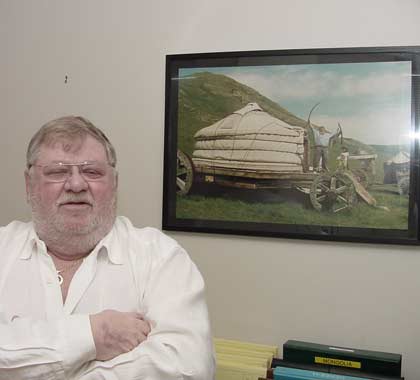 Al:
I talked to John a couple weeks ago. What success have you had with finding Mr.
Khan? Al:
I talked to John a couple weeks ago. What success have you had with finding Mr.
Khan?
Maury: This year we were planning to go
out to Mongolia as we have for every summer for the last five years. I knew
there would be a problem with funding because the kind of funding that we had
for the expedition had been provided by a small group of businessmen here in the
Chicago metropolitan area. They have been wonderful and have provided the money
for our expedition to go to Mongolia every summer for five years. I anticipated
that you can't expect this faucet to keep running. Five years is a long time
for private people to come forth with heavy money that was required to put an
expedition out into central Mongolia. As I anticipated, the funding did not
come forth for this summer.
Al: What was in it for a businessman to invest in something like this since you
couldn't take anything out of Mongolia?
Maury: Well, there are media rights that
they own. I assigned all the media rights to them. They had the rights to any
of the documentaries if produced.
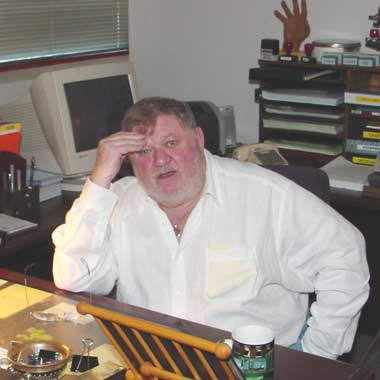 Al: John, told me about the movie. How is that going?
Al: John, told me about the movie. How is that going?
Maury: The movie is right now in what I
consider a very sad state, and with good reason by the way. I will explain that
to you in a second. Our backers own that movie should it ever be produced.
They own the coffee table book should it ever be produced. They own the lecture
series should there be one and all other associated media rights which gives
them a chance to get their money back. They are in a good position. The money
that they put out is all deductible. The guy that puts in $40,000 over five
years for financing is writing off $20,000 of it, so it is chump change.
Now for the movie, I have learned a
lot about this stuff. I'm pretty well in charge of understanding of what is
going on out there in Hollywood now. This story, "Kravitz and the Khan," was
brought to the Hollywood studios two and a half years ago by a production
company, Prep Productions. They have produced a lot of movies. They lined us
with nine of the biggest studios like DreamWorks, Universal, MGM, Five Star,
etc. The first studio that they presented it to was MGM. They went thru the
synopsis of the movie and told Prep to stop presenting. They wanted to buy
it. What does that mean when they are a buyer? It means this: we are going to
buy the life rights of this story from Maury Kravitz. They would hire a
screenwriter for a minimum of three screenplay versions of this story.
I am enthralled! They sent the head
of their production department at MGM. She flew to Chicago and had lunch with
me. She wanted to see and meet me. We spent an hour and forty-five minutes
together at the North Shore Hotel for lunch. The next stage was to write the
contract and they would buy my life story at the going rate.
Al: What's the going rate for the average life story?
Maury: Well, a life story could go for
$30-35,000 down and an additional $250,000 at the time that they approve the
screenplay. When the movie is produced, they give the person another $250,000.
The person could also expect to receive percentages on ticket sales. When the
Erin Brokovich story came out, it cost that studio millions to get it
straightened out. They tried to take advantage of her, but she was too smart
for them. At any rate, if the movie generates $30-40 million over cost, a
person could expect to get 1.6% of the ticket sales. If they generate $130
million, it would go up to 1.9%. If it generates over $300 million, you get
2%. So, it could be a lot of money if you hit a real good picture. They
estimated that this movie would cost $70 million to produce. I think that is a
realistic estimate.
Then they hired a screenwriter, Craig Tipley. He wrote half of Silence of the Lambs, Sleepless
in Seattle, Scooby Doo, and Scooby Doo II. The guy was very
enthusiastic and loved the Khan's story. He writes the first screenplay after
coming and living with me for four days. Day in and day out, he was with me.
He just wanted the experience of Maury on a day to day basis-he never left me
alone!
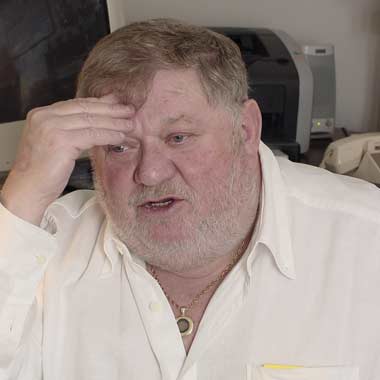
Al:
How did the screenplay go?
Maury: It was absolutely one of the
worst pieces of junk that was ever written!!! However, he thought it was pretty
good. I called up MGM after reading it, and I said, "Stephanie (head of
productions) what is this thing? Did you read it?" She said that she had and
to put it mildly, MGM was severely disappointed. I said, "Listen to me. Do I
have some input with you? I know I do; you are paying me $25,000 consultation
fee. I want to earn some of my consultation fee. If you put your money into
this, you will have lost the whole flavor of the story. The screenplay doesn't
even feel the romance of the story. He attaches me with an assistant whose name
is Dude and wears cowboy boots! This guy doesn't know the first thing about
Maury Kravitz!"
I wrote Stephanie a five page letter
telling her that this is an adventure story-a true historical adventure. I
suggested John Milius write the screenplay. He won the Academy Award for
Apocalypse Now. There is no question that he could do this, and he is a
director as well as a writer. She told me he hasn't done anything for five
year, but I replied that he was the kind of guy that can do this kind of work.
This would be a natural for him.
When I found out that they were
paying Craig Tipley $400,000 for three versions of the movie, that is when I
really lost my cool with MGM. I liked the guy, but his second version was worse
than the first. I even said to him, "Craig, why are you reaching out to create
the characters when you have real life characters among the Mongols and people
like John Woods. You don't need to invent some cowboy character, Dude, when you
have Woods! He has real substance.
Then I called MGM again and told them
that the second version was a disaster. Stephanie agreed and said that MGM
would never think of putting $70 million into a movie like this. I told
Stephanie how the movie should open. She got another producer on the phone.
Now, I had an asst director, a producer, and the head of production at MGM on
the phone. I said there is only one way to open this movie as far as I'm
concerned:
The opening of this movie should take place in Mongolia. It should show in the
first scene to the theater audience the hoof of a horse-just the hoof, then
panning up the horse's leg, you see someone is sitting on the horse. He is in
full Mongol warrior regalia. It is no one less that
Chinggis Khan.
You immediately see him on his horse with his hands folded on the head of the
saddle looking straight ahead, his men are all around him, and there is no
music, no sound. In the background, there is a full regalia of the opposing
army-still complete silence. The first action is Chinggis Khan
turning his face slightly to the camera on a 40 degree angle, and he gives a
visible nod. With that nod, the entire Mongol army starts to walk their
horses-not canter, not trot....just walk No drums, no sound, no music, no voices,
nothing. You walk with them and as they walk towards the opposing army. The
walk is converted into a very comfortable like canter which increases slowly
from a canter to a trot, from a trot to a gallop and then there is one word
issued by Chinggis Khan-the Mongol word for "charge" is "Racht".
He breaks his scimitar out of its scabbard, holds it over his head, points it
toward the enemy, and says, "Racht" With that there is a mad charge and then
you give the audience a seven to eight minutes bloodbath of what Mongols' armies
did in the 13th century. Give them something worse than what Mel
Gibson showed the audience Braveheart. And then I said, swirl the scene
out of the distance, and the next scene you see is the Mercantile Exchange
trading pit with Maury Kravitz in the middle of it in a violent trading period.
The violence is similar to the battle in the 13th century-that's the
way the movie should open!! They were aghast, and they accepted it. They went
to Mr. Tipley and said they had talked to Maury about the opening scene. They
told him that I had has suggested this as the opening, and that they would like
him to incorporate this in the third version which he did. However, he talked
to me a half dozen times about it. He wanted to put drumbeats in, etc. I
disagreed. The Mongols didn't make attacks with drumbeats; they used
psychological factors all the time. They wanted the silence before an attack to
drive the enemy up a tree! He put it in and then wrote one of the worst
renditions-another disaster.
The end of the story is this, MGM
took the whole project and they put it into "turnaround." Turnaround is when
they have spent the money, bought the life story of someone, hired a
screenwriter, assigned certain staff to the profiling of the movie, and decided
that what had been produced does not justify an investment of $70 million. You
have now two choices: You can either hire another screenwriter and spend another
$650-700,000 or you can see if you can get out of the deal which is called
turnaround. The intent of a turnaround is to market the property to other
studios. The problem is that very few other studios are going to buy turnaround
movies. Those studios will wait the waiting period of a year and a half and
grab it ourselves.
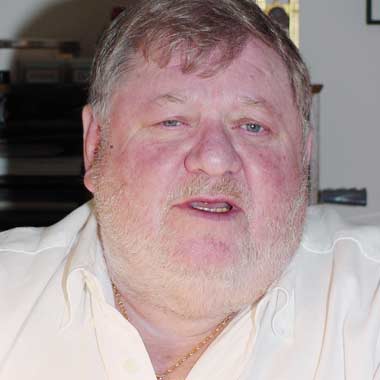 Al:
How long has it been now? Al:
How long has it been now?
Maury: Since the month of turnaround it
has been six months, but something else happened. There is always something
going on with me; there's never a quiet moment. Suddenly, out of the blue
Christopher Columbus appears. He was an understudy with Steven Spielberg, the
guy who should make my move. Spielberg couldn't do it, because George Lucas had
prevailed upon Spielberg to make Indiana Jones IV. Spielberg is caught in the
web and has signed up to make it. So, he is out of it. During Spielberg's
formative days, his first assistant was Chris Columbus. Chris made some
wonderful movies and did some wonderful screenplays; he is a great writer. He
has a tremendous reputation and now he is in the top three directors in the
world because of the Harry Potters. Chris is looking around for a new property
and new involvement. Craig Tipley calls me and he has been contacted by Chris.
Chris asked Craig what was happening with the
Chinggis Khan movie? Craig told him about the rejection of all three screenplays. Chris
asked if he was out of contract? So, Craig calls me, and asks when we will be
free of MGM? I said that it would be up at 9am May 16th. Today is
May 12th. In four days, Maury can sell his story to whomever he
wants!
Chris
is very interested and thinks there can be a great story in this. He wants to
use the 13th century 20th century idea, and then finally
bringing the two guys together for Chinggis Khan
has been in search for Maury Kravitz.
Now let me bring you up to date.
Chris is interested. We spent two hours on the phone. He asked me how I saw
the story and how much literary license would I be comfortable with? I told him
that I wanted the movie made. I will be very supportive of it. In fact, I know
how the movie should start and now I know how the movie should end. He said
about how I would end the movie? This is what a told him:
(Text of the closing scenes and dialogue coming soon)
|
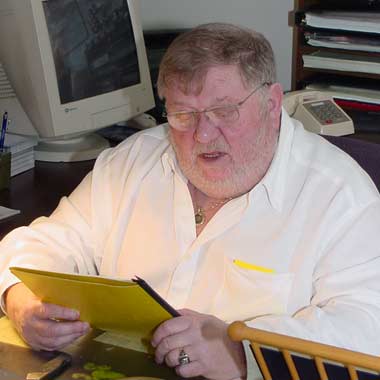
THE
GENGHIS KHAN MOVIE
(CLOSING SCENES AND DIALOGUE)
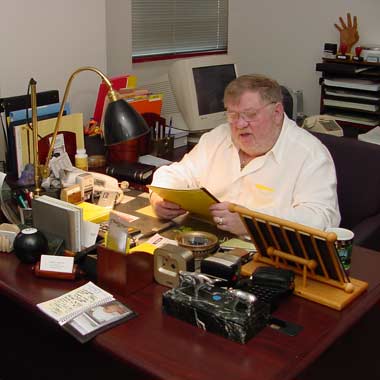 These closing scenes and accompanying dialogue take place during the last
few days of the fourth year of the expedition-August-in the northern
Hentll Province of Mongolia where the expedition encampment is located at
the outer parameter of the "Uglugchin Wall area". The encampment area
consists of four log buildings, five large "gers" (tents) and additional
smaller tents housing the 53 individuals that make up the expedition party.
It is early in the morning and professor Woods and Jimmie Kersting have just
sat down in the mess tent fort their breakfast and their morning coffee. In
the east, the sun has just peaked over the hills. Woods is already sitting
at the mess table as Jimmie enters the tent.
These closing scenes and accompanying dialogue take place during the last
few days of the fourth year of the expedition-August-in the northern
Hentll Province of Mongolia where the expedition encampment is located at
the outer parameter of the "Uglugchin Wall area". The encampment area
consists of four log buildings, five large "gers" (tents) and additional
smaller tents housing the 53 individuals that make up the expedition party.
It is early in the morning and professor Woods and Jimmie Kersting have just
sat down in the mess tent fort their breakfast and their morning coffee. In
the east, the sun has just peaked over the hills. Woods is already sitting
at the mess table as Jimmie enters the tent.
Prof. Woods: "Good morning, Jim! It's going to e a hot one today"
Kersting: (Pours himself a cup of black coffee and stands opposite of
Woods) "Say John. Have you seen Maury this morning?"
Prof. Woods: "No I have not. He must still be asleep!"
Kersting: "I just came from his cabin and his cot was not slept in last
night"
Prof. Woods: "What?! (with great concern) last time I saw him was
yesterday evening. I saw him leave the camp!"
Kersting: "He left the camp?"
Prof. Woods: "Yes...he said that he wanted to take a little walk towards the
hills and be by himself a bit"
Kersting: "Well, John I don't know but I did look through out the entire
camp this morning and he is nowhere to be found. I even walked up to the
diggings....no Maury! (Spreading his hands out, palms up) No one has seen
him this morning.....John....you say you saw him leave camp yesterday evening?"
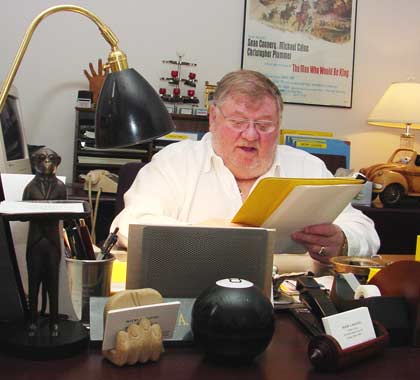 Prof.
Woods: "It was a little before sunset. He was standing along the east side
of his cabin smoking a cigarette. I was checking the GPPS....I did talk to
him for a few minutes."
Prof.
Woods: "It was a little before sunset. He was standing along the east side
of his cabin smoking a cigarette. I was checking the GPPS....I did talk to
him for a few minutes."
Kersting: "Did he seem alright?" (Stirring his coffee)
Prof. Woods: "He seemed fine! We talked a bit about the next days dig. He
told me that he was very tired but that he wanted to take a little walk
before he turned in. I offered to go along with him but he said that he
would rather be alone. I advised him not to go out too far as it would be
dark soon. I suggested that if he was going out alone that he should take a
rifle with him. He said "No that it was not necessary as he had his little
berretta with him". We chatted for a few minutes more and then he headed
out. I walked over to by ger and turned in. When I left him, he was
wearing his field jacket and had his hiking boots on. I thought it was kind
of unusual because I don't remember him ever wearing those boots. He was
carrying a canteen and a flashlight on his belt."
Kersting: "Look.....John! He is nowhere to be found in this camp. I even
checked over at the toilet building!....Empty! The cooks haveNot seen him
this morning so he did not even have any breakfast this morning. No one has
seen him since yesterday afternoon !!
Prof. Woods: "This is impossible!....Where the hell could he be?"
Kersting: "Beats me!........But I don't like it!"
Prof. Woods: "Jim.........get a hold of Orgil and Ganga and lets start looking
for him!"
SCENE CHANGE
Maury left eh encampment the previous afternoon and trekked out to the
northeast of the encampment. When he had walked for about two and one half
miles to where the grassy aprin area had started to fall away to a rather
hilly threshold Maury stopped, rested on a large boulder and swallowed a
couple of gulps from his canteen. The sun had started its final decent for
the day and was perched in a spectacular fashion to the west over a group of
round surfaced hilly knolls. The temperature was dropping sharply and it
was getting cold. Maury buttoned up his field jacket, placed hi s canteen
on its hook on his belt and took out a pair of well-worn woolen gloves out
of the left pocket of his jacket and put them on. He then pulled out a
small berretta automatic from the left pocket of his field jacket. He cocks
the pistol and takes the safety off and tucks it back into his field jacket
pocket. He then strolls over to a flat topped boulder and removed a
battered old map from his inner jacket pocket and spreads it out on the top
of the boulder. The map is old and heavily creased. The writings on the
map are in old Syrillac letters. The parchment map is yellow with age. In
the left hand corning is the clear symbol of the 13th century
standard of the Mongolian Army its time. The spear like standard carries
the nine yak tails of the 13th century Mongol Army.
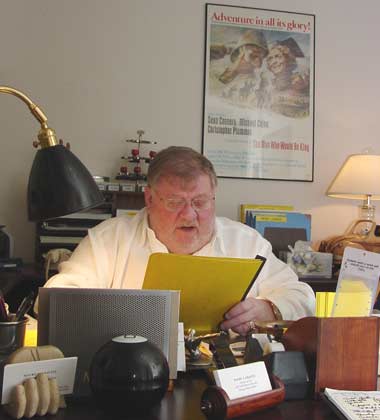
Kravitz
spreads the map out on the face of this flat topped boulder holding the top
with his two hands and tucking the bottom of the map between his field
jacket and the boulder. He bends over the map with obvious intensity.
After peering at the map for a minute or two, Kravitz looks towards toe
northwest at a rather uninteresting outcropping of small hills about three
quarters of a mile away. There is a narrow crease that disturbs the
continuity of the hill group. Kravitz looks at the map again, smiles and
folds the map up and returns it to hi inner pocket. He then says in an
audible whisper, "It won't be long now, old man"
Kravitz pulls the collar flaps of his field jacket up as far as they can go
and starts walking towards the creased hills to the northwest. The hills
appear to be about a mile away. The ground is strewn with rocks of various
sizes. Kravitz picket his way thru the rocky surface. The sun is almost
completely down over the horizon and the stars are beginning to make their
appearance. Ten minutes later the sun is gone and it is dark. The creased
hills are no longer visible. Kravitz checks his compass and proceeds in the
direction indicated by the lit compass relief. It is now bitterly cold, he
continues to make his way cross country in the dark. He walks for about 15
minutes and then suddenly arrives in front of a clump of boulders. Kravitz
finds a V-shaped cut between two large boulders and sits down on the ground
between the boulders. The ground is scrubby but not uncomfortable. He
removes a soft leather pouch from his leg pocket and removes a soft cloth
garment from the pouch. It is a small portable pillow. He brings the
pillow to his face and presses the air compressor valve to his lips. Within
several minutes, the pillow as expanded to his designed size. Kravitz lies
down, tucks the little pillow under his left ear, pulls himself into the
fetal position and falls asleep within several minutes.
THE NEXT MORNING
The sun is up and beginning to blaze away!
Maury awakes, clears the sleep from his eyes stretches his aching legs and
stands up. He leans on one of the boulders, thrusts his right hand into the
right hand pocket of his field pants and brings out two Oreo cookies. They
are stale but Maury wolfs them down immediately. He takes a couple of gulps
from his canteen and starts to walk directly to the creased hill area, which
appears to be very close.
Although the creased hill area appears to be very close, two and one half
hours later Maury has not yet reached the area. As he approaches the hilly
knoll area Maury heads directly towards the crease, which disturbs the
smoothness of the hills. There is a large depression directly in front of
where the crease begins. When he arrives at the threshold of the depressed
area, he stops and takes out the old map and glances at it for a minute.
His finger traces out the depressed area which is clearly indicated on the
map. (The camera should look over Maury's shoulder as he looks at the map)
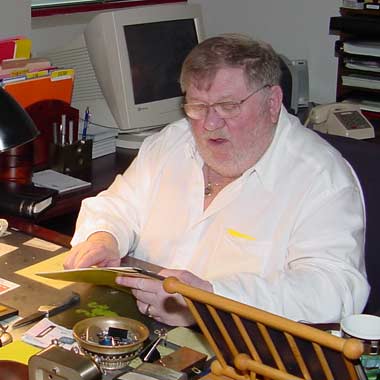 Maury enters the depressed area. This area is about a hundred yards wide
and about 150 yards in length. It is covered with wild flowers and small
rocks and stones. It leads directly into the creased area of the little
hills. Maury walks over to the area where it terminates into the crease.
At that point, the crease begins and then turns sharply to the right cutting
straight thru a series of these little hills. Kravitz walks between two of
the hills. The sides of the hills are chalky white. As Kravitz turns to
the right to enter the crease, he takes out his map and then counts out a
series of steps. He stops and places his hands against the side of the hill
to his immediate right.
Maury enters the depressed area. This area is about a hundred yards wide
and about 150 yards in length. It is covered with wild flowers and small
rocks and stones. It leads directly into the creased area of the little
hills. Maury walks over to the area where it terminates into the crease.
At that point, the crease begins and then turns sharply to the right cutting
straight thru a series of these little hills. Kravitz walks between two of
the hills. The sides of the hills are chalky white. As Kravitz turns to
the right to enter the crease, he takes out his map and then counts out a
series of steps. He stops and places his hands against the side of the hill
to his immediate right.
The
chalky side of the hill is very soft and a part of its surface comes away
under the pressure of Kravitz's hand, Kravitz removes his field knife from
the side of his belt and thrusts into the side of the hill. The blade
enters the hillside all the way to the hilt of the large blade. The side of
the hill under the knife blade starts to give away. Kravitz brings the
knife away from the hillside and then stabs into the surface at about eye
level. The blade enters softly and the side of the hill comes away easily.
Kravitz then runs the blade of his knife in a vertical direction with the
blade being inserted as far as it can go. He cuts thru right down to the
ground below him then brings the blade straight up thru the vertical cut
that he has made. At eye level the blade feels so resistance and Kravitz
then begins to cut horizontally. It is obviously the top on an entrance.
He cuts across the top and finds the softness of the blade cut. With his
other hand he brushes away the chalky surface. The material of the entrance
falls away revealing a very symmetrical square entrance. The sun pours thru
the opening revealing a walkway that slopes slightly down. Kravitz enters
and walks for bout twenty feet. The tunnel veers to the left. Kravitz
follows the turn and almost immediately enters a hug cavern.
The
first sight that greets Kravitz is nothing less than mind-boggling. The
cavern in huge. It appears to be more than football field in length and his
about 50 yards in width. Starting at Kravitz's feet just where he stands at
the end of the entrance slope are cases, sacks, boxes and unencased piles of
gold coins, jewels, and various precious metal items of incredible variety.
Some of these piles reach as high as six feet. These items are strewn over
the entire floor of the cavern. And extend to the very back of the cavern.
The cavern ceiling with is natural rock is approximately 20 feet in height!
The light coming into the cavern is coming from the entranceway slope, and
yet the entire room is illuminated in half light which allows Kravitz to see
the entire cavern. Kravitz looks around. He notices that there is no
apparent source for this light.
It
is as Kravitz brings his eyes up and focuses them upon the very farthest
point of the cavern that he sees sitting elevated upon a huge chair what
appears to be at the distance the skeletal remains of a man. It is the
Khan!!
Kravitz starts criss crossing his way over and in between the vast amount of
piles of treasure and makes his way slowly towards where the Khan is
seated. When is about 20 feet away Kravitz is able to note that the Khan is
seated on a large chair which is elevated about 2 to 3 feet from the found
level. The skull is capped by the remnants of the 13th century
Mongol Warrior's helmet. It ris leather in form with ear flaps heavily
frayed at the ends. The Khan is seated very erect in the chair. The rest
of the Khan's uniform is a mass of decaying and shredded leather armor. The
Khan has a huge sword laying across his lap and both arms and hands are
holding the sword across his lap.
As
Kravitz approaches the Khan he is peering directly into the eye orbit of the
Khan's skull. (there is a strange light which emanates from the Khan's eye
orbits.) When Kravitz reaches within just ten feet of the Khan there is the
hissing of a strange wind. It seems to be focused on the Khan himself.
Kravitz blinks his eyes and the strange wind whirles into white mist
swirling around the Khan in his chair. In a few seconds the Khan is
transposed form his skeletal remains into the flesh and blood of the living
Khan! The Khan is still seated in his chair....still holding his massive
sword on his lap, however, he is no longer attired in the rotting remnants
of his soldier's uniform. His uniform is that of the typical 13th
century Mongol warriors. The leather shines and he wears a large circular
metal guard at the middle of this chest. His helmet is shinning and in
perfect condition with the ear flaps loose and hanging over his ears. The
Khan removes his sword from his lap and leans it against the side of the
chair. The Khan stands up without ever removing his piercing gaze from
Kravitz's eyes. Kravitz is silent but breathing hard! The Khan is over six
feet tall with incredibly broad shoulders and a huge chest. He wears a
white beard which is merged into a long white drooping mustache.
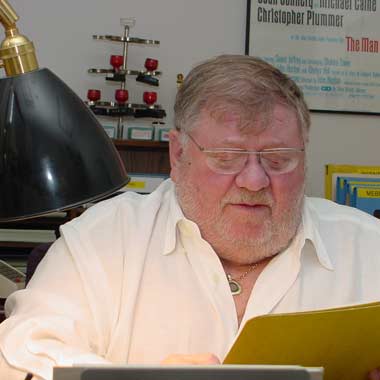
THE
FINAL CONVERSATION
The
Khan: "Come close"
Kravitz: "As you wish, Lord! (Kravitz steps forward about 4 to 5 feet. The
Khan is still elevated higher on his chair platform. The Khan steps down
from the platform and now stands directly in front of Kravitz only 4 or 5
feet away)
The
Khan: "I knew you would find me!"
Kravitz: "I never really believed that I would!"
The
Khan: "It was ordained that you would! I knew it long ago, and helped you
along the way. Did you not know this, my son?"
Kravitz: "Lord Khan.....I am not even sure that this is really happening!
How can you be standing before me when I know that you died 875 years ago.
This must all be a dream.
The
Khan: "All life is dream, my son. Sometimes it is difficult to separate
reality from the dream....our meeting today is no dream!
Kravitz: "Then.....am I to believe that although 9 centuries have passed
since you died that you are standing here before me fully alive?"
The
Khan: "I am no alive.....you are alive!"
Kravitz: "How can this be?"
The
Khan: "It is not important that you do not understand how this can
be.....only that you understand that it is so!!"
Kravitz: "Lord Khan...I would like you to understand how I feel as I stand
here before you!"
The
Khan: "I understand completely how you feel"
Kravitz: "I have spent so many years of my life as part of your life.
There have been so many moments where I have felt that I could almost touch
you. I have felt tat times that I have been with you while you were leading
your armies...and on many, many other occasions in your life"
The
Khan: "Of course I know this to be true. I have been with you during many
many periods of your life. I have watched you closely and I know very well
how you have felt about me. Your respect and loyalty to be has been well
noted and I have been very grateful for your friendship!"
Kravitz: "This is all so amazing...and yet I am not shocked!"
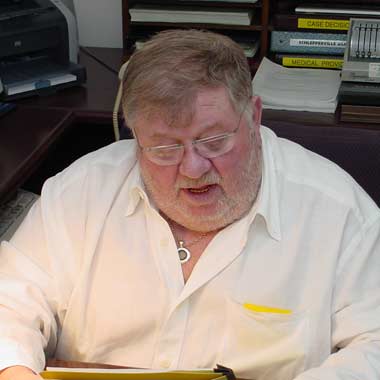
The
Khan: "By the way, Maury...Do you know what your name "Maury" means in
Mongolian?"
Kravitz: "yes I do.........it means horse"
The
Khan: "It is fitting that you are horse. We, Mongolians are a people that
are very sensitive to omens and magical symbols. The horse is a very
important creature in our lives. Not very many men would be endowed with
the name "horse". It is fitting that this should be your name"
Kravitz: "Lord Khan. How do you regard me?"
The
Khan: (leaning toward Kravitz)"I regard you as being as close a man to me
as any man that I have ever known! I know how you regard me. I know your
heart and I know your feelings towards me. "(the Kahn sits down on the
cavern floor and crosses his legs under him) "sit down opposite me!" (Kravitz
quickly sits down on the cavern floor and crosses his legs under him. Only
four feet separate the Khan's face from Maury's face. They look into each
other's eyes. It is only now that Maury notices that the Khans eyes are
grey.) "Do you understand the significance of the "anda" relationship?"
Kravitz: "I believe that I do.....It is the ultimate profession of
comradeship and brotherhood between two men!"
The
Khan: "It is even more that that! It is the merging of two men's souls
into one....not mere comradeship and not just brotherhood but the ultimate
blending of two separate men's spirits into a unit of one spirit. Andas are
incomplete without each other!"
Kravitz: "I believe that I understand!"
The
Khan: "I know that you do!"
(The Khan draws a shinning silver bladed dagger from its sheath tucked into
hi s belt sash. He holds the dagger in his right hand and presents the palm
of his left hand and holds it immediately before Maury no more than several
feet away from Maury's body. The palm of the Khan's left hand is held palm
up. With the Khan's eyes riveted to Maury's eyes the Khan sweeps the blade
of the dagger across his left palm. The blood from the cut comes forth
immediately. The Khan(without moving his eyes away from Maury's eyes turns
the dagger so that the dagger handles now faces Maury) Maury immediately
takes the dagger in his right hand while at the same time turning the palm
of this left hand upwards. Maury brings the blade and cuts across the open
palm of his left hand the blood comes forth immediately---both the Kahn and
Maury john left hands while peering into each other's eyes)
Khan: (without smiling) "Maury..be then thou my Anda"
Maury: "I am greatly honored, my Lord! (Maury hands the dagger back to the
Khan which he accepts and returns to its sheath on his sash) My Lord Khan
(hesitates)...be then thou my Anda"
Khan: "I am greatly honored, Maury" From this time on you shall not call me
"Lord Khan" to you I shall always be "Temujin"
Maury: "I understand"
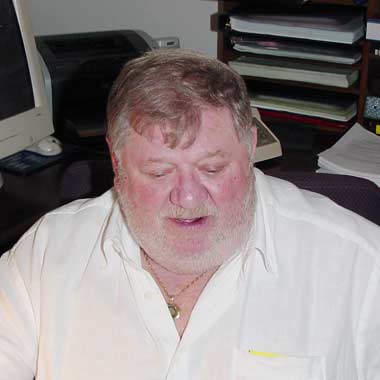
Khan:
"As my Anda I shall place myself between you and the arrow points. As my
Anda I shall receive the sword blade before it reaches you. As my Anda I
shall not sleep while you are awake. As my Anda I shall not eat until you
have eaten. As my Anda your enemies shall be my enemies and your family
shall be my family."
Maury: "Temujin, as my Anda I shall accept the arrows into my body before
they can reach you. I shall stand between you and the enemy's sword. I
shall watch over you as you sleep and shall never take foods while you
hunger. Your enemies shall be my enemies and your family shall be my
family"
(All the above exchange of Anda oaths are made as Maury and Temujin clasp
their left hands together...dagger wound to dagger wound!) At the conclusion
of the exchange of oaths, both Maury and Tamujin remove their hands from
each other. When they do Maury notices that there is no longer any
indication of the dagger cuts on either his hand or on Temujin's hand))
The
Khan: (still seated on the floor)"Well, my Anda...tell me now that you have
found me....what is to be come of me? Do you intend to remove me from here
and place me in a glass case in some museum?" (The Khan smiles as he asks)
Maury: "Temujin, my Anda....I have given your removal from here much thought
over the last few months....and I have made a decision about this"
The
Khan: "and what is that decision?"
Maury: "My decision is that I am not going to reveal the location of your
resting place!"
The
Khan (now standing): "After all that you have gone thru to get here....you are
not going to bring me out?"
Maury (no standing): "That is correct"
The
Khan: "What is the reason for your decision?"
Maury: "First of all.....since we are not Anda, I cannot make such a decision
without your approval! But more importantly, I cannot bring myself to
disturb your sleep and to violate your rest. I shall not be the one to do
this". The time for you to come forth must be a decision by you and no one
else"
The
Khan: "I would expect nothing less than this from my Anda. You have
pleased me greatly."
Maury: "It is my sincere hope that somehow we shall meet again"
The
Khan: (approaching Maury)"I wish you to have this" (the Khan extends his
right hand toward Maury. In the palm of the Khan's hand is a small gold "paiza".
(The gold paiza is the 13th century emblem of supreme authority
granted to Genghis Khan to his closest officers and followers) the Khan
presses it into Maury's right hand.
Maury: "I am greatly honored, Temujin"
The
Khan: "In the years to come when you might have doubts as to whether we
actually met together on this day, you shall look at eh "paiza" and know
that all that has happened today really happened?" ....and now my Anda let me
ask you....what are your dreams for the future?
Maury: "My dreams have been fulfilled this very day" All save one!"
The
Khan: "What would that be my Anda?"
Maury: "My greatest dream can never happen!"
The
Khan: "And what would that be?"
Maury: "If I had wish, it would be that I would have lived during your
lifetime back in the 13th century and that I would have had the
opportunity to ride with you side by side"
The
Khan: (smiling) "We shall be together again, Maury."
Maury: "How can that be?"
The
Khan: "Do you remember three years ago when you were being blessed by the
Shamon "Sansuren" on the plains of the Kurultal what he said to you?"
Maury: "I remember it very well! He whispered in my ear that the Lord
Chinggis Khan gives me ninety five years"
The
Khan: "In the summer of your ninety fifth year we shall come together
again.....and from that point on we shall ride the steps together side by side
as two Andas should!" Now. It is time for you to return to your world and
for me to return to my rest!"
(The Khan turns away from Maury and returns to his chair. He sits down and
takes his sword and replaces it upon his lap. Maury turns toward the
entrance and makes his way toward the entry point. Just as Maury prepares
to leave the tomb, he turns and faces the Khan. As he looks at the Khan the
Khan raises his right hand into the position of farewell. Maury raises his
right arm in the position of farewell and as he does this, there is a swirl
of mist around the Khan and in that, instant the Khan is once more sitting
on his chair in the skeleton stage...just as Maury had seen him when he first
entered the tomb.
Maury Exits the tomb and in less than 20 minutes seals the entrance so that
there is no indication of an entry point. When he has finished he takes the
map from his pocket and sets it on fire with his cigarette lighter. The old
map burns quickly and when finished Maury takes the ashes and throws the
remnants into the wind....nothing is left!
FINAL SCENE
It
is the late afternoon and it takes Maury bout three hours to return to the
expedition campsite. When Maury sees the camp, he begins to walk in a
different direction so as to be sure that he enters the campsite from a
different sector.
As
Maury approaches the camp, he quickly notices that John Woods is standing at
the opening of his tent! Maury approaches him while at the same times Woods
walks briskly out to meet Maury. As they approach each other:
Woods: "My God man...where the hell have you been? The whole camp has been
all over hell looking for you!"
Maury: "Well, I went out for my little walk and before I knew it, it got
dark. I just crawled down near a couple of boulders and slept out under the
stars. It was great!"
Woods: "But Maury, for God's sake you did not tell anyone and we have been
frantic trying to find out what in the hell happened to you!"
Maury: (both Woods and Maury have not entered Woods' tent) "I am really
sorry, John. Please forgive me!"
Woods: "Well thank God you are O.K. What the hell did you do out there
anyway?"
Maury: "I had to do a lot of thinking about a lot of things. I needed to
be along, John!"
Woods: "I hope that you resolved any problems you had. Is there anything I
can do to help?"
Maury: "Thanks John. Everything is fine. But John I would like to ask you
something"
Woods: "Sure...anything!"
Maury: "John...don't you think that there are some things that are better off
not found?"
Woods: (incredible look on Wood's face) "What does that mean?"
Maury: "It's nothing John! I guess I am a little tired. I think I am
going to go outside and watch the sunset.
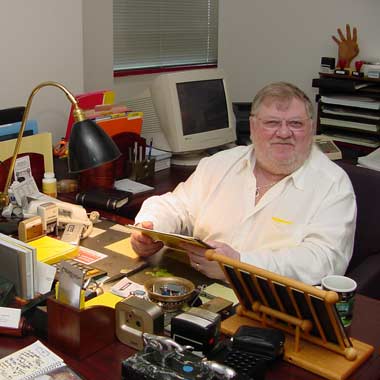
(As Maury turns and begins to walk out of the tent, the little old "paiza"
drops out of his jacket pocket to the tent floor. Woods sees the "paiza"
fall to the floor. Woods picks up the "paiza" and immediately recognizes
what it is.
As
woods looks at the "paiza"holding it in the palm of his right hand he said
in an audible whisper "my god he has found the tomb and he is not going to
disclose it:"
(Woods looks at the doorway of the tent. He sees the back of Maury's head
as Maury is looking out at the setting sun:"
(The closing scene could be presented with the playing of the opening bars
of music from the first movement of Beethoven's 6th Symphony "The
Pastoral"
THE SCREEN DARKENS
THE MOVIE ENDS

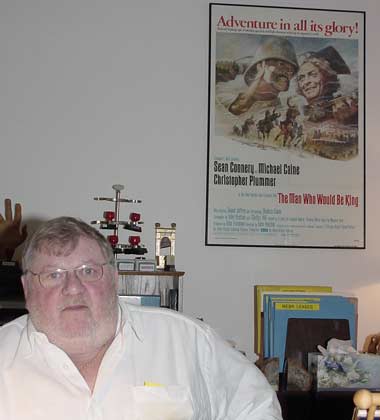
|
|








 Al: I was talking to your buddy over at the University of Chicago.
Al: I was talking to your buddy over at the University of Chicago. Al: I would have like to have bought a lot of gold
at that price!
Al: I would have like to have bought a lot of gold
at that price! Al:
You did this while you were still working at the Merc?
Al:
You did this while you were still working at the Merc? So, the business started coming, and
my business just exploded! Like a hydrogen bomb! The Exchange started to see
what was going on. More and more brokers were coming into the gold pit, and
there was one guy who controlled practically all the business. It grew to 10-15
brokers and me, then 25 then 40 then 50, then 80 brokers. To give you a sense
of what this really meant, I have to show you a picture that I will take off the
wall. This picture is good because it conveys the sense of what I was in the
midst of in the middle of 1975. It sends the message real loud and clear. I'm
right in the vortex! Now, in addition to gold being a new product, on top of
this romantic commodity being what it was with its historical credentials, the
US was in the throes of one of the worst inflationary periods in many years,
which was the main fuel for gold.
So, the business started coming, and
my business just exploded! Like a hydrogen bomb! The Exchange started to see
what was going on. More and more brokers were coming into the gold pit, and
there was one guy who controlled practically all the business. It grew to 10-15
brokers and me, then 25 then 40 then 50, then 80 brokers. To give you a sense
of what this really meant, I have to show you a picture that I will take off the
wall. This picture is good because it conveys the sense of what I was in the
midst of in the middle of 1975. It sends the message real loud and clear. I'm
right in the vortex! Now, in addition to gold being a new product, on top of
this romantic commodity being what it was with its historical credentials, the
US was in the throes of one of the worst inflationary periods in many years,
which was the main fuel for gold.
 Finally, the Board's Executive
Committee came to me be of the sheer size of what I was doing was overwhelming
the entire contract. They called me in and said, "Maury, you can't handle all
this business. You've got all the security firms in the country and are
practically trading with yourself." They had a rule: if you couldn't get a bid
or offer from the other side, you had to renounce it three times in the pit. If
you couldn't get somebody else to fill your order you crossed it. So, I traded
with myself. I bought and sold myself. They said, "This is bad; this is going
to ruin our contract." They ordered me to sell them my business. This was a
traumatic event for me. I said, "Do you realize what you guys are telling me to
do? I'm being penalized for being a good capitalist." They said, "Yes we are,
but we want our contract.". I had no choice. I couldn't take on the leadership
of the Exchange. I called in several young brokers who had almost no business
and that that I would give them some accounts. I started to split up my
business. Several of them ended up shortchanging me. This happened because not
everyone in this world is an ethical person as you know. I spent the next five
years being immersed in that market and on January 21, 1980, gold was drifting
around above $800 an ounce. I had made the trip with gold from when I arrived
in the pit at around $100 an ounce to $800 an ounce. You are talking about a
product increasing by 800%.
Finally, the Board's Executive
Committee came to me be of the sheer size of what I was doing was overwhelming
the entire contract. They called me in and said, "Maury, you can't handle all
this business. You've got all the security firms in the country and are
practically trading with yourself." They had a rule: if you couldn't get a bid
or offer from the other side, you had to renounce it three times in the pit. If
you couldn't get somebody else to fill your order you crossed it. So, I traded
with myself. I bought and sold myself. They said, "This is bad; this is going
to ruin our contract." They ordered me to sell them my business. This was a
traumatic event for me. I said, "Do you realize what you guys are telling me to
do? I'm being penalized for being a good capitalist." They said, "Yes we are,
but we want our contract.". I had no choice. I couldn't take on the leadership
of the Exchange. I called in several young brokers who had almost no business
and that that I would give them some accounts. I started to split up my
business. Several of them ended up shortchanging me. This happened because not
everyone in this world is an ethical person as you know. I spent the next five
years being immersed in that market and on January 21, 1980, gold was drifting
around above $800 an ounce. I had made the trip with gold from when I arrived
in the pit at around $100 an ounce to $800 an ounce. You are talking about a
product increasing by 800%.  Al:
I always believe that pain produces creativity and motivates a person to
succeed. What pain accounts for your success?
Al:
I always believe that pain produces creativity and motivates a person to
succeed. What pain accounts for your success? Al: What did you do after the Merc and S&P. What was your next phase in your life?
Al: What did you do after the Merc and S&P. What was your next phase in your life? Al:
I talked to John a couple weeks ago. What success have you had with finding Mr.
Khan?
Al:
I talked to John a couple weeks ago. What success have you had with finding Mr.
Khan? Al: John, told me about the movie. How is that going?
Al: John, told me about the movie. How is that going? Al:
How long has it been now?
Al:
How long has it been now?
 These closing scenes and accompanying dialogue take place during the last
few days of the fourth year of the expedition-August-in the northern
Hentll Province of Mongolia where the expedition encampment is located at
the outer parameter of the "Uglugchin Wall area". The encampment area
consists of four log buildings, five large "gers" (tents) and additional
smaller tents housing the 53 individuals that make up the expedition party.
It is early in the morning and professor Woods and Jimmie Kersting have just
sat down in the mess tent fort their breakfast and their morning coffee. In
the east, the sun has just peaked over the hills. Woods is already sitting
at the mess table as Jimmie enters the tent.
These closing scenes and accompanying dialogue take place during the last
few days of the fourth year of the expedition-August-in the northern
Hentll Province of Mongolia where the expedition encampment is located at
the outer parameter of the "Uglugchin Wall area". The encampment area
consists of four log buildings, five large "gers" (tents) and additional
smaller tents housing the 53 individuals that make up the expedition party.
It is early in the morning and professor Woods and Jimmie Kersting have just
sat down in the mess tent fort their breakfast and their morning coffee. In
the east, the sun has just peaked over the hills. Woods is already sitting
at the mess table as Jimmie enters the tent. Prof.
Woods: "It was a little before sunset. He was standing along the east side
of his cabin smoking a cigarette. I was checking the GPPS....I did talk to
him for a few minutes."
Prof.
Woods: "It was a little before sunset. He was standing along the east side
of his cabin smoking a cigarette. I was checking the GPPS....I did talk to
him for a few minutes."
 Maury enters the depressed area. This area is about a hundred yards wide
and about 150 yards in length. It is covered with wild flowers and small
rocks and stones. It leads directly into the creased area of the little
hills. Maury walks over to the area where it terminates into the crease.
At that point, the crease begins and then turns sharply to the right cutting
straight thru a series of these little hills. Kravitz walks between two of
the hills. The sides of the hills are chalky white. As Kravitz turns to
the right to enter the crease, he takes out his map and then counts out a
series of steps. He stops and places his hands against the side of the hill
to his immediate right.
Maury enters the depressed area. This area is about a hundred yards wide
and about 150 yards in length. It is covered with wild flowers and small
rocks and stones. It leads directly into the creased area of the little
hills. Maury walks over to the area where it terminates into the crease.
At that point, the crease begins and then turns sharply to the right cutting
straight thru a series of these little hills. Kravitz walks between two of
the hills. The sides of the hills are chalky white. As Kravitz turns to
the right to enter the crease, he takes out his map and then counts out a
series of steps. He stops and places his hands against the side of the hill
to his immediate right.




